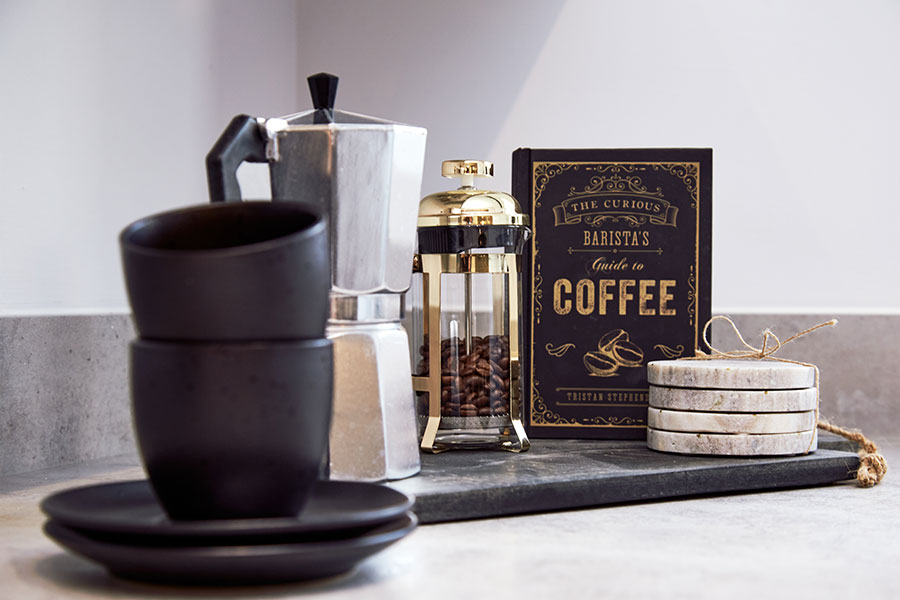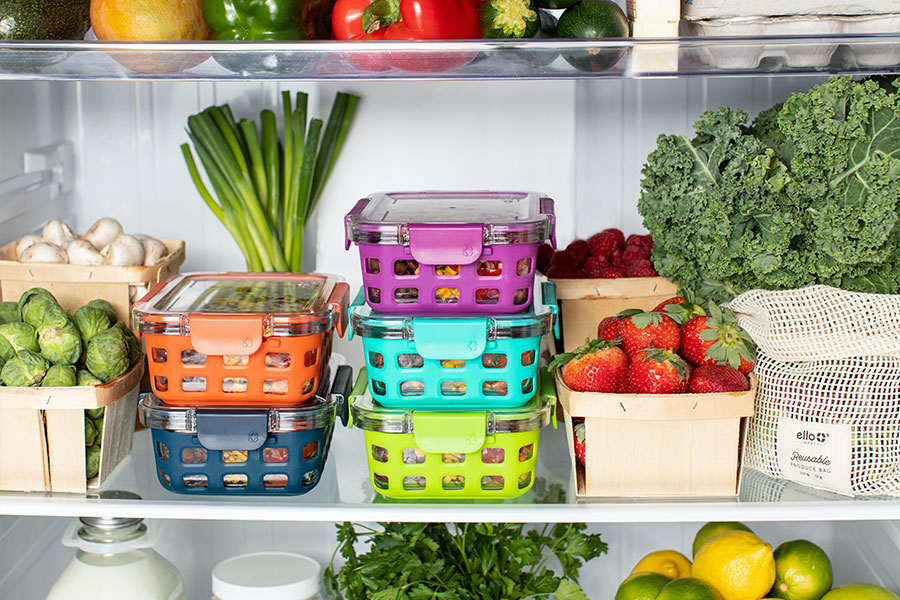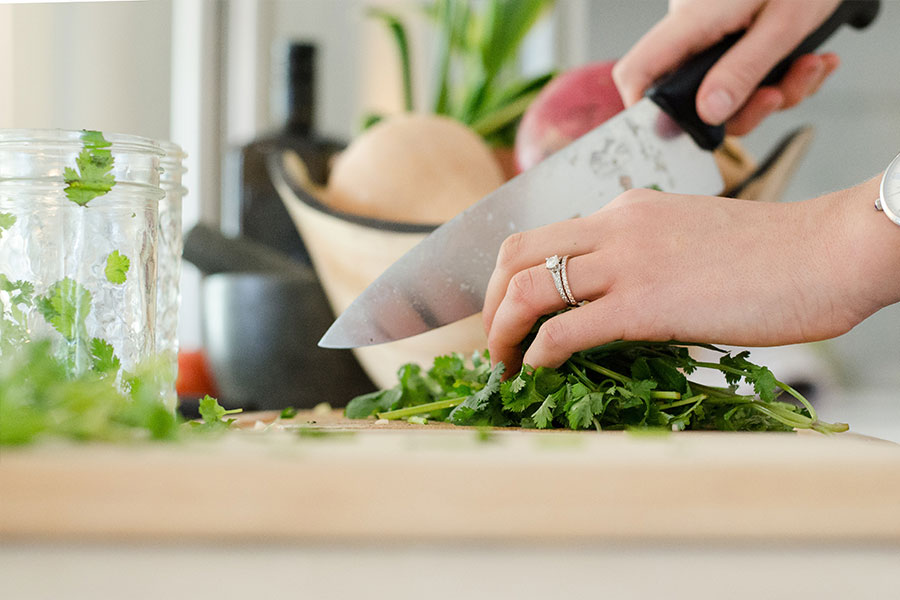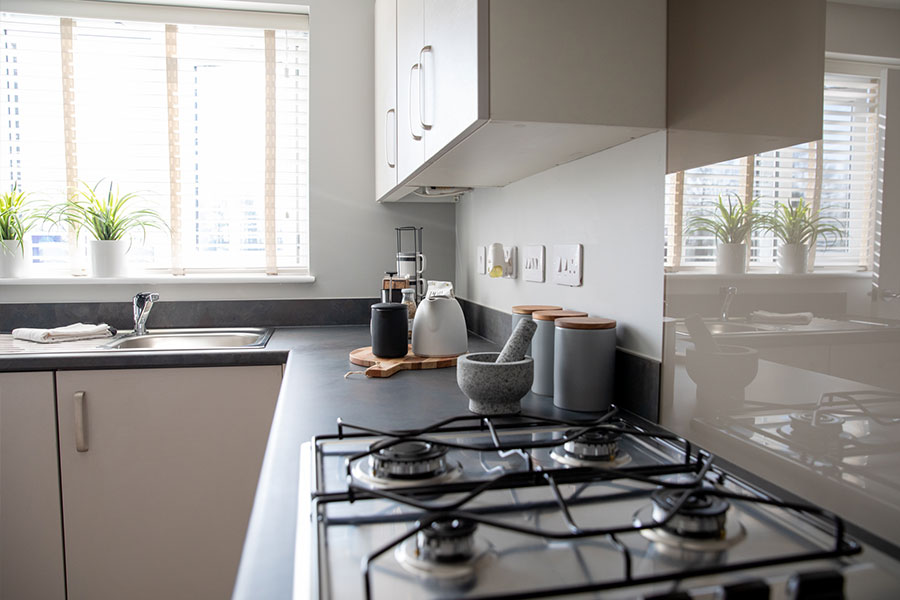 Business news
26/07/2024
Business news
26/07/2024
5 ways to be more environmentally conscious in the kitchen

We’re all trying to do our bit for the planet, whether it’s taking shorter showers to save water or using a cycle to work scheme. There are many simple ways to be more environmentally conscious without making a huge effort, and the kitchen is a great place to start.
1. Compost!
Whether you live in a flat or have a house with a huge garden, there are many ways to make use of composting - which saves food waste too! To start, simply purchase a compost bin, which can be a large one if you have a garden, or a small countertop version for those without.
What can you compost?
- Fruit and vegetables
- Eggshells and nutshells
- Dryer and vacuum lint
- Coffee grounds, filters, and tea bags
- Leaves and houseplants
- Hair or pet fur
- Shredded newspaper, cardboard, and paper
Once you have been composting for a while, you’ll be able to use the end product for your houseplants, to grow vegetables and flowers, or to spread on your lawn. Alternatively, you can also search for your local council’s composting facility and drop off your compost there.
2. Ditch the pods and filters
If possible, make your morning brew with a cafetiere, or traditional coffee machine. This way you won’t have to use and waste filters or throw away endless coffee pods. Even better, if you get yourself a glass or metal French press, you’ll be entirely plastic free!
However, if you like the style and ease of your coffee pod machine (let’s face it we all love them!), then check the website of your machine manufacturer, as many of them now have recycling schemes.

3. Invest in reusables
There are many single use plastics in our kitchen cupboards, such as cling film, zip lock bags and other food storage.
Alternatives to cling film, such as beeswax wraps are available, and are designed to keep your food fresh. After use, nstead of throwing the wraps away, you can simply wash and reuse. There is also silicone 'Food Huggers’ on the market, which act as cling film, tightly wrapping around your food so that it stays fresh – much better than plastic wrap!
You can buy reusable food bags made from silicone too, and there’s a variety of plastic free food storage on the market. As well as replacing plastics, you can also invest in reusable kitchen towels, so not only will you be helping save paper (and money), you’ll never be caught short of kitchen roll. These can go in the washing machine just like your tea towels.

4. Save food scraps
If you notice fresh vegetables starting to go off in the fridge or coming to the end of their use-by date, rather than throwing these in the bin, chuck them into the freezer instead. Once you have a big batch of these frozen vegetables, you can make a soup or veg broth with lots of herbs and spices – which will be absolutely delicious.
If you buy fresh herbs, such as basil, coriander and mint, save these once they’ve passed their use by date or started to wilt by putting them into the freezer too. Add the herbs to an ice cube tray and pour in olive oil instead of water, then freeze. Next time you’re cooking up a storm, simply add your ready-made cooking cube to the pan.

To do your best to save waste in the first place, try and opt for single vegetables at the supermarket - buying less or just what you need. This will also save plastic use, as single vegetables come without the plastic packaging.
5. Upgrade your appliances
Though it may seem counterproductive to buy new kitchen appliances, a lot of old appliances, especially those that aren’t running as smoothly as they use to, will take a lot more power to run.
We’re not saying to ditch every electrical in your kitchen for a swanky new upgrade, but if there’s anything that’s on its last legs, or becoming faulty, it may be best to replace the whole thing than spend money on repairing something old. Make sure when you are choosing your new gadgets, you look for environmentally friendly ones, especially those that save energy.

New appliances, especially large ones like your cooking hob, fridge and microwave are generally made to be a lot more energy efficient, however there still may be use for your old electronics to save them from going to the tip. Selling, donating, or recycling should always be looked into before throwing your old belongings away.
If you have any cool gadgets or storage tips that help you be more environmentally friendly, let us know by tagging @KeepmoatHomes in your posts and using the hashtag #KeepmoatHomes.
Continue reading
 Business news
26/07/2024
Business news
26/07/2024
 Business news
23/07/2024
Business news
23/07/2024
Work starts on Keepmoat’s 205 new homes at ‘Water’s Edge’ development in Blackburn
 Buying guide
16/07/2024
Buying guide
16/07/2024
Our Guide for First-time Buyers
 Lifestyle
21/06/2024
Lifestyle
21/06/2024
